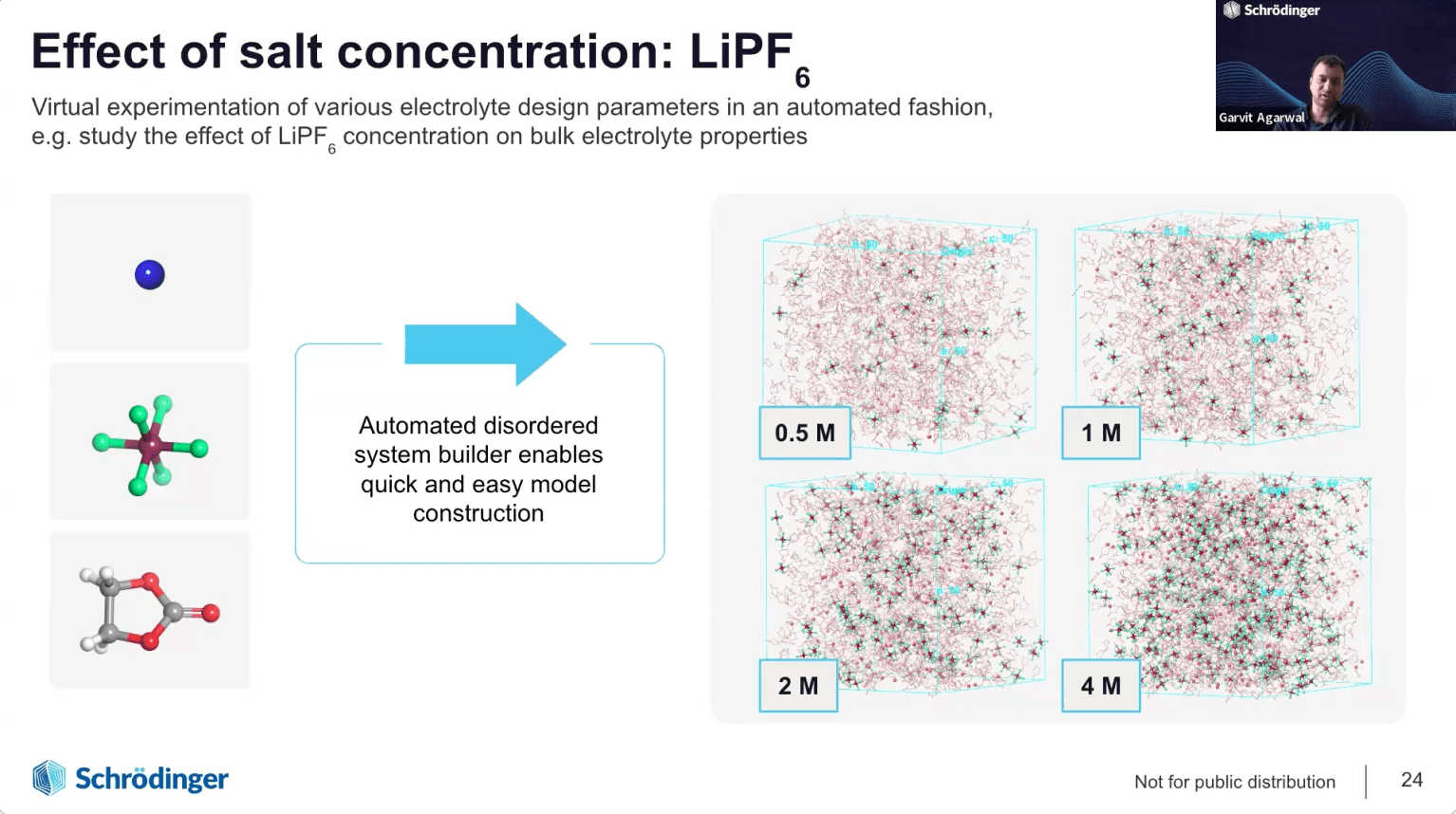
JUN 26, 2024
Electrodes, electrolytes & interfaces: Harnessing molecular simulation and machine learning for rapid advancements in battery materials development
Schrödinger is excited to be presenting in a webinar hosted by the Battery Technology Platform, taking place on June 26th. Join us for a presentation by Garvit Agarwal, Ph.D., Scientific Lead at Schrödinger, titled “Electrodes, electrolytes & interfaces: Harnessing molecular simulation and machine learning for rapid advancements in battery materials development.”
Abstract:
Li-ion battery (LIB) technology has revolutionized industries like transportation and consumer electronics. However, new battery chemistries are needed to address rapidly growing demand and to improve the power density, safety, reliability, and lifetime of LIBs.
In this webinar we will explore the key materials challenges for improving battery performance and demonstrate how atomistic simulation and machine learning (ML) enable swift evaluation and screening of vast design spaces, accelerating the introduction of innovative technology to market.
We will introduce the latest technological innovations in Schrödinger’s digital chemistry platform for battery materials design. In particular, the webinar will focus on examples to demonstrate the application of automated solutions for accurate prediction of thermodynamic stability and voltage profile of cathode, ion diffusion pathways and kinetics in electrode materials, transport properties of liquid electrolytes and modeling the nucleation and growth of solid electrolyte interphase (SEI) layers using Schrödinger’s SEI simulator module. We will also introduce an automated generalized framework for the development of customized machine learning force fields for complex materials such as liquid electrolytes, inorganic cathode coatings and solid polymer electrolytes, paving the way for efficient design of novel materials for next generation batteries.
Key Learning Objectives:
- Gain insight into how a digital chemistry approach reduces development cycle time for new battery materials
- Learn how Schrödinger’s automated high throughput simulation workflows and ML models enable rapid screening of battery materials candidates
- Learn how to leverage automated solutions for accurate prediction of key battery properties: thermodynamic stability and voltage profile of electrodes, ion diffusion pathways and kinetics in electrodes, transport properties of liquid electrolytes, and the nucleation and growth of solid electrolyte interphase (SEI) layers
- Hear applications of advanced machine learning force fields for accurate modeling of electrolyte materials, cathode coatings and interfaces

Garvit Agarwal, Ph.D.
Scientific Lead, Energy Storage Materials Science Group, Schrödinger
Garvit Agarwal is Senior Scientist and Scientific Lead for Energy Storage at Schrödinger, working to extend and apply molecular modeling tools for the accelerated discovery of next-generation clean energy technologies. Garvit obtained his Ph.D. in Materials Science and Engineering from the University of Connecticut. He worked as a post-doctoral researcher in the Materials Science Division at Argonne National Laboratory prior to joining the Materials Science team at Schrödinger.